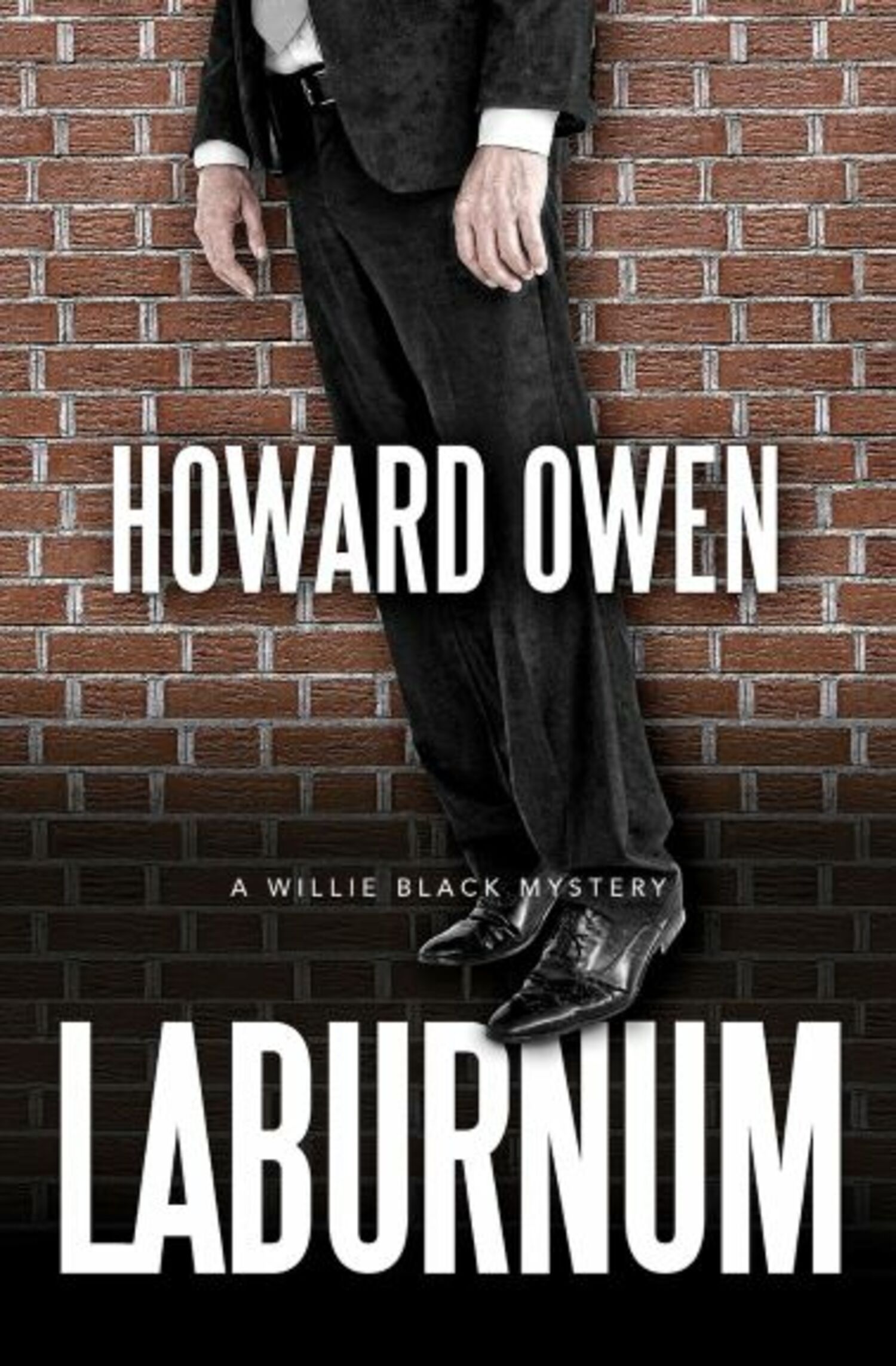
The East End’s only indie publisher, the 46-year-old The Permanent Press (TPP), founded by the late Martin Shepard and his wife, Judith, continues to publish fine fiction, sometimes nonfiction, and garner literary awards, though fewer readers nationwide are buying print. Some East End bookstores, however, manage to stay open, attracting local authors and audiences. TPP, now under the watchful eyes of Judith Shepard and her son Caleb Kercheval, is sticking with their tried and true authors, such as best-selling journalist and crime fiction writer Howard Owen, who proves that literate readers appreciate wit and timely social commentary along with their murder narratives. Though Owen has 24 books to his credit, “Laburnum,” the 14th in his Willie Black mystery series, shows that he — and Willie Black — still have it.
Over the years, Willie, a bi-racial sharp and sympathetic reporter on his failing daily in Richmond, Virginia, has been beaten, bested, demoted from covering the legislature … and married many times — he’s on number four, his now sure-to-be final squeeze, Cindy. He’s also a father and grandfather. He used to be tops at his newspaper, but dubious shortcuts to the truth and his opposition to corrupt or indifferent management have landed him on the lowest reportorial rung — covering the police night beat. But he perseveres doing what he loves, which is writing breaking news stories and following his unerring instincts about bad guys — winding up, as readers could predict — with additional trouble, putting lives in danger, including his own.
His sardonic charm is such, however, that he attracts frenemies in the police department who, for all their criticism of his out-of-order behavior, begrudgingly rely on him. He is a journalist par excellence.
“In the sullen quiet of a newsroom that’s just gotten news that it has tested positive for obsolescence, I focus on what’s looming,” he says.
Although on in years from when Owen first introduced him 13 books ago, Willie shows constancy in his compassion for those around him and manifests an unwavering sense of political and racial justice. Family, friends and cohorts stand by him. These include his marijuana-addled mother, Peggy; the not-quite-right-in-the-head, formerly homeless Awesome Dude, whom Peggy looks after; Willie’s longtime Indian friend Abe Custalow, who, thanks to Willie, works at their apartment complex; his successful ambulance-chasing big-mouth Black lawyer Marcus Green, who married one of Willie’s former wives; and younger, former mentees at his paper who know that Willie’s honest, smart and reliable — unlike the rotating publishers out for a buck who threaten to close the paper down, and probably will. Meanwhile, Willie sniffs out clues about murders that others overlook or think have been solved — pursuits that make the politicos and police unhappy but lead to the right resolutions.
As always in the Willie Black series, Owen combines murder mystery with criticism of society, here in “Laburnum” even more pronounced than usual: loyalty to print journalism, as opposed to online sites “where rumors are preferred to cold, hard facts,” and fights over the second amendment. Indeed, the opening two murders in the book feature 1) the hanging body of a pro-gun legislator; and 2) the knifed body of another gun-toting partisan. Neither one was shot, which delights the NRA crowd, but both victims were outspoken supporters of guns in schools and streets and for anyone over the age of six. What the two murdered congressmen also have in common is that they both worked for the same prestigious law firm years ago that ruled against the third son of a wealthy man who took care of him in favor of the man’s two indifferent older sons.
Also, as always in the series, Owen makes sure there are touches of historic Richmond in the mix. Willie’s wife investigates and discovers that “Laburnum,” the name of an apartment complex, “Laburnum House,” where the bodies were found, was named originally for a little known hardwood tree with yellow flowers and poisonous seeds. Now in its third incarnation from previous fires, Laburnum has history, going back to the days of Robert E. Lee. These sections are informative departures and provide local color and customs. (I wrote to the author to ask about back porches being typically “Southern” when they face north and east — answer: cooler.)
And still as always in the Willie Black series — in the forefront, actually — is the character and voice of Willie, whose mocking, scatological dark humor and cynical undertones convey the societal criticism that sets Owen’s books apart. As usual, nice going from a former newspaper man living in a former capital of the Confederacy.